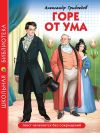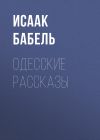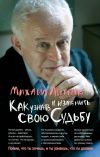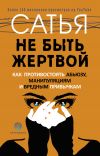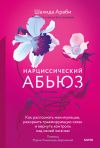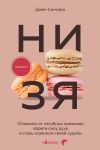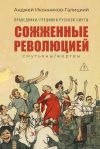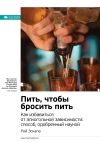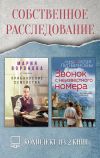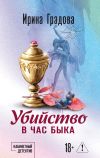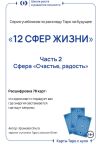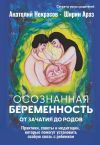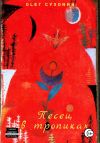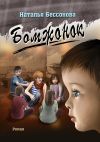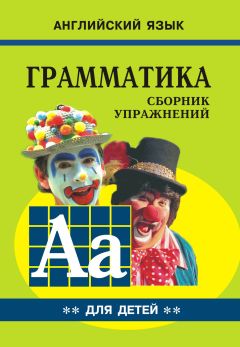
Автор книги: Марина Гацкевич
Жанр: Прочая образовательная литература, Наука и Образование
Возрастные ограничения: 6+
сообщить о неприемлемом содержимом
М. А. Гацкевич
Грамматика английского языка для школьников Cборник упражнений. Книга II
Дорогие мальчики и девочки!
Вот и опять мы с вами встретились на страницах нашего пособия. В прошлой книге вы узнали о глаголах “to be”, “to have”, о грамматических временах Present Simple (Indefinite) Tense, Present Progressive (Continuous) Tense и о конструкции “there is (are)”.
Я надеюсь, что вы выполнили все упражнения, и это не вызвало у вас больших трудностей. Вот так шаг за шагом мы с вами будем путешествовать по стране знаний под названием «Английская грамматика». Не всегда наше путешествие будет лёгким. Как у всех путешественников, на нашем пути будут встречаться трудности, но мы обязательно их преодолеем. Первый шаг вы уже сделали, а теперь нам предстоит сделать второй, более сложный.
В этой книге вы познакомитесь с новыми грамматическими временами. Как я уже говорила, эта книга – продолжение предыдущего сборника. Если вы хорошо поработали ранее, то у вас не вызовут затруднений упражнения из этой книги.
А мои советы вам остаются прежними: делайте обязательно все упражнения, работайте ежедневно и прочитывайте написанное вслух.
Я убеждена, что вы трудолюбивые и умные ученики.
Я верю в ваш успех!
Автор
THE PAST SIMPLE (INDEFINITE) TENSE


Правильные глаголы образуют прошедшее время путём прибавления окончания –ed или –d, которое читается как [t], [d], [ıd].

Особенности правописания правильных глаголов:
– удваивается конечная согласная в односложных и двухсложных глаголах с краткой гласной;
skip – skipped
stop – stopped
hop – hopped
– в глаголах, оканчивающихся на согласную с последующей буквой “y”, конечная гласная “y” меняется на “i” и добавляется окончание “ed”.
try – tried
cry – cried
But
play – played
yesterday ['jɛstədı] вчера
last week (month, year, summer, Sunday) на прошлой неделе (месяце, году, летом, воскресенье)
the day before yesterday позавчера
five minutes ago пять минут назад
an hour ago час назад
the other day на днях
1. Write the verbs in three columns.
[t]
[d]
[ıd]
washed, cleaned, dressed, helped, played, watched, listened, painted, looked, jumped, skated, skied, skipped, sledged, lived, loved, liked, thanked, wanted.
2. Open the brackets. Put the verbs into the Past Simple.
1. The pupils (to run) a race at the stadium last week.
2. Their family (to go) to the seaside a month ago.
3. Margaret (to do) the shopping yesterday evening.
4. They (to listen) to music at the concert hall yesterday.
5. My father (to fix) his car the other day.
6. Fred and Helen (to stay) at a hotel last June.
7. Bat (to water) the flowers an hour ago.
8. We (to travel) by sea last summer.
9. Sally (to try) on a white dress at the shop yesterday.
3. Open the brackets. Put the verbs into the Past Simple.
1. You (to go) to the theatre last week.
2. Al (to buy) black shoes three days ago.
3. I (to give) a call to Sam five minutes ago.
4. Alice (to knit) a warm sweater last month.
5. He (to get) off the train a minute ago.
6. They (to watch) squirrels in the park last Sunday.
7. We (to arrive) in Moscow yesterday evening.
8. The children (to learn) new nice poems by heart last week.
9. Carol (to catch) the plane yesterday morning.
4. Open the brackets. Put the verbs into the Past Simple.
1. Colin (to celebrate) his birthday last Monday.
2. Her younger sister (to collect) stamps last year.
3. Jake (to travel) by car two months ago.
4. We (to go) to the circus last Saturday.
5. Willy (to answer) my questions a minute ago.
6. My mother (to cook) cabbage soup for dinner yesterday.
7. Polly (to make) coffee in the kitchen five minutes ago.
8. I (to copy) out a text yesterday evening. 9. Paul (to draw) a beautiful picture last week.
5. Open the brackets. Put the verbs into the Past Simple.
1. My brother (to join) the army last autumn.
2. Dave (to act) on the stage yesterday evening.
3. I (to wear) a new suit at the party yesterday.
4. Billy (to drink) a cup of coffee an hour ago.
5. We (to discuss) this problem last Tuesday.
6. The secretary (to type) a letter twenty minutes ago.
7. Tib (to translate) a very difficult text from French into English two days ago.
8. They (to visit) their friends last Friday. 9. Bob (to find) his documents yesterday evening.
6. Open the brackets. Put the verbs into the Past Simple.
1. The child (to tell) lies a minute ago.
2. Tony (to look) through all magazines yesterday evening.
3. I (to send) a telegram to my Granny last Wednesday.
4. Rose (to take) her medicine half an hour ago.
5. We (to go) boating last summer.
6. George (to draw) a funny animal yesterday.
7. His elder sister (to lock) the door with a key yesterday evening.
8. Liz (to make) lunch for her family five minutes ago.
9. They (dance) in the disco club last Friday.
7. Open the brackets. Put the verbs into the Past Simple.
1. We (to go) to the concert two days ago.
2. I (to help) my friend with Maths last week.
3. Sandy (to keep) to a diet last month.
4. They (to laugh) at Sue yesterday evening.
5. David (to leave) for New York two months ago.
6. Liz and Jack (to get) married last year.
7. Their family (to move) to a new flat last Sunday.
8. The children (to play) snowballs last winter.
9. Nan (to meet) her friend at the bus stop yesterday.
8. Open the brackets. Put the verbs into the Past Simple.
1. We (to listen) to our Granny’s stories yesterday evening.
2. They (to go) home by car last Monday.
3. Nick (to work) on a farm three years ago.
4. The teacher (to give) a pupil a good mark yesterday.
5. I (to meet) my elder brother at the tram stop an hour ago.
6. Jack (to sit) on a bench under a tree a minute ago.
7. My parents (to pick up) berries in the garden two days ago.
8. Jane (to wash) fruit for lunch ten minutes ago.
9. Willy and Alf (to travel) by car last summer.
9. Open the brackets. Put the verbs into the Past Simple.
1. His father (to buy) a new car last month.
2. I (to give) my mother a present for her birthday last Tuesday.
3. We (to get) to the village by train last month.
4. The pupils (to go) to the Winter Palace last week.
5. Molly (to sweep) the floor half an hour ago.
6. My friends (to stay in) after classes the day before yesterday.
7. He (to drive) Liz to work yesterday morning.
8. Rita (to wash) clothes last Thursday.
9. They (to decorate) their children’s room last week.
10. Open the brackets. Put the verbs into the Past Simple.
1. We (to sleep) with the window open last night.
2. I (to leave) home for work twenty minutes ago.
3. Betty (to ring up) her friends yesterday evening.
4. She (to cook) fish soup for dinner yesterday.
5. Dick (to look for) his keys yesterday morning.
6. Jane (to tell) funny stories last Friday. 7. Sue (to learn) a difficult text by heart yesterday.
8. My mother (to translate) an article from English into Russian the day before yesterday.
9. They (to have) two cups of coffee five minutes ago.
11. Open the brackets. Put the verbs into the Past Simple.
1. I (to help) my grandparents about the house last week.
2. My brother (not to skate) at the stadium last Wednesday.
3. His uncle (to come) home at one o’clock yesterday.
4. We (to have) supper at the café yesterday evening.
5. They (to drink) coffee for lunch yesterday.
6. I (to do) my homework the day before yesterday.
7. Mr. Brown (to go) to the stadium last week.
8. Henry (not to ski) last month.
12. Open the brackets. Put the verbs into the Past Simple.
1. My niece (not to have) supper yesterday.
2. Her husband (to take) a shower yesterday morning.
3. Their grandson (not to do) his homework yesterday.
4. My cousin (not to wash up) the day before yesterday.
5. His sister (to go) for a walk last Thursday.
6. Jack and Mary (to play) hide-and-seek yesterday evening.
7. I (not to watch) TV yesterday.
8. Monica (to go) to the swimming pool yesterday afternoon.
13. Open the brackets. Put the verbs into the Past Simple.
1. Charlie (to put on) a new suit yesterday.
2. Our mother (not to have) breakfast yesterday morning.
3. She (to eat) an apple for lunch yesterday.
4. I (to go) to the sports ground the day before yesterday.
5. My little nephew (to play) with his cars yesterday evening.
6. Her mother (to go) shopping yesterday afternoon.
7. I (to do) my morning exercises yesterday.
8. We (to have) supper with our friends yesterday evening.
14. Open the brackets. Put the verbs into the Past Simple.
1. Her granddaughter (to go) to bed at ten o’clock yesterday.
2. I (to go) to Moscow last week.
3. We (not to walk) last Sunday.
4. My brother (to get up) at nine o’clock the day before yesterday.
5. Our aunt and uncle (to come) home at eleven o’clock last Monday.
6. The children (to go) to school at a quarter to nine yesterday.
7. His niece (not to have) lunch yesterday morning.
8. I (to eat) soup for dinner yesterday.
15. Open the brackets. Put the verbs into the Past Simple.
1. We (to swim) in the swimming pool last autumn.
2. My nephew (not to help) his mother last Monday.
3. His uncle (not to ski) last winter.
4. I (not to eat) porridge for supper the day before yesterday.
5. My grandparents (to write) a letter to their friends yesterday.
6. The child (not to wash) his face yesterday morning.
7. His daughter (to run) at the stadium last week.
8. Mr. Brown (to have) dinner at a restaurant yesterday.
16. Open the brackets. Put the verbs into the Past Simple.
1. Molly (to drink) milk for lunch yesterday.
2. Den (to wake up) at ten o’clock the day before yesterday.
3. My sister (to do) her homework yesterday afternoon.
4. Their aunt (not to read) books yesterday evening.
5. Bill (not to wash) his face yesterday evening.
6. Her friend (to write) a letter to her grandmother yesterday.
7. You (not to play) chess last week.
8. Our relatives (to go) to Novgorod last month.
17. Open the brackets. Put the verbs into the Past Simple.
1. Our uncle (not get up) at eight o’clock yesterday.
2. Their little sister (to make) the bed yesterday morning.
3. My niece and nephew (to wash up) yesterday afternoon.
4. I (not to do) my homework the day before yesterday.
5. My parents (to come) home at eight o’clock yesterday.
6. Meggy (to clean) her teeth yesterday morning.
7. Her cousin (to go) to school last Saturday.
8. His little brother (to wake up) at ten o’clock yesterday.
18. Open the brackets. Put the verbs into the Past Simple.
1. Her little niece (not to go) to bed at nine o’clock yesterday.
2. Our grandmother (to watch) TV yesterday morning.
3. My parents (to go) shopping the day before yesterday.
4. My grandfather (to help) his wife about the house yesterday.
5. We (to have) soup for dinner yesterday.
6. My brother (to write) a letter to his friend yesterday.
7. They (to go) to the country last summer.
8. Our friends (not to go) to London last month.
19. Open the brackets. Put the verbs into the Past Simple.
1. I (to clean) my teeth yesterday morning.
2. My cousin (not to do) his morning exercises yesterday.
3. His father (to go) to Africa last year.
4. Our parents (not to watch) TV last week.
5. Mike (to drink) juice for lunch the day before yesterday.
6. Her grandson (not to have) breakfast yesterday morning.
7. They (not to go) to school at three o’clock yesterday.
8. We (not to eat) porridge for supper the day before yesterday.
20. Open the brackets. Put the verbs into the Past Simple.
1. My grandparents (to wake up) at six o’clock yesterday morning.
2. She (to take) a shower yesterday evening.
3. My friend (not to eat) cakes for supper last week.
4. They (to go) to the theatre last Sunday.
5. The boys (to swim) in the swimming pool the day before yesterday.
6. We (not to have) dinner yesterday afternoon.
7. My mother (to read) a book the other day.
8. Her grandmother (to watch) TV yesterday evening.
21. Open the brackets. Put the verbs into the Past Simple.
1. His brother (not to go) to school last Saturday.
2. The women (to have) dinner at the office yesterday evening.
3. I (not to come) home at twelve o’clock last week.
4. We (to eat) sour cream for breakfast yesterday.
5. My niece and nephew (to go) to the cinema last Monday.
6. Her parents (not to go) shopping yesterday afternoon.
7. I (to play) tennis the day before yesterday.
8. Clem (not to take) a shower yesterday morning.
22. Open the brackets. Put the verbs into the Past Simple.
1. Her son (to skate) yesterday evening.
2. Children (not to help) their mother about the house.
3. My uncle (to skate) yesterday evening.
4. His aunt (to drink) coffee for breakfast yesterday.
5. My little sister (to skip) yesterday.
6. His parent (not to ski) last month.
7. The girls (to run) at the school sports ground last week.
8. My cousin (not to do) his homework yesterday morning.
9. I (to swim) last year.
23. Open the brackets. Put the verbs into the Past Simple.
1. Dave (to write) a letter to his grandmother last week.
2. Robert (to have) coffee for breakfast the day before yesterday.
3. Liz (to wash) her hands ten times yesterday.
4. We (not to go) for a walk last Tuesday.
5. I (not to have) supper yesterday afternoon.
6. Mark (to drink) a glass of juice for lunch yesterday.
7. You (not to watch) TV last month.
8. The girl (to skip) yesterday afternoon.
24. Open the brackets. Put the verbs into the Past Simple.
1. Their friends (to go) to school last Saturday.
2. My father (not to have) bread for dinner yesterday.
3. I (not to come) home at eleven o’clock yesterday.
4. We (to do) our homework yesterday evening.
5. Our parents (to go) to the theatre last week.
6. My sister and I (to play) volleyball the day before yesterday.
7. Our friends (to skate) at the sports ground last winter.
8. You (not to do) your morning exercises yesterday.
25. Open the brackets. Put the verbs into the Past Simple.
1. We (to go) to America last month.
2. My little sister (not to clean) her teeth yesterday evening.
3. Helen (to write) a letter to her father the day before yesterday.
4. My grandfather (to drink) tea for supper yesterday.
5. She (not to wake up) at five o’clock yesterday.
6. They (to go) for a walk last Tuesday.
7. Jack (not to do) his morning exercises last year.
8. Charlie and Roy (to read) books yesterday evening.
26. Write the sentences in the negative.
Example:
Rolf wrote a letter to me last week.
Rolf didn’t write a letter to me last week.
1. I travelled around Africa last month.
2. Tom stayed at an expensive hotel last summer.
3. Margaret played golf the other day.
4. David swam in the ocean last week.
5. Fred helped about the house during the summer holidays.
6. We visited Greece twice last year.
7. He worked hard in the garden yesterday.
8. Molly watered flowers, plants and vegetables last Monday.
9. They called a doctor yesterday evening.
27. Write the sentences in the negative.
1. Tib met a famous pop singer yesterday.
2. We travelled by sea last month.
3. Carol read stories by Walter Scott last year.
4. He looked after his little puppy last week.
5. They enjoyed their summer holidays.
6. Sam watched cartoons yesterday evening.
7. His elder sister washed her clothes yesterday.
8. She cleared the table yesterday morning.
9. Her cousin swept the floor two hours ago.
28. Write the sentences in the negative.
1. Susan washed the sink in the kitchen yesterday.
2. The pupils stayed in after classes the day before yesterday.
3. He cut the bread and sausage yesterday evening.
4. She put the kettle on an hour ago.
5. My friend dusted the furniture yesterday.
6. Don slept with the window open last week.
7. Liz rang up her best friend yesterday. 8. His sister washed her dress yesterday evening.
9. Father beat the carpet last Sunday.
29. Write sentences as in the example.
Example:
Kate went to school yesterday. (to make a cake)
She didn’t make a cake yesterday.
1. Fred played football yesterday. (to play the piano)
2. I cleaned the carpet yesterday morning. (to go shopping)
3. They watched video films yesterday evening. (to go to the park)
4. We went in for skating last winter. (to go skiing)
5. She washed up yesterday afternoon. (to knit)
6. My little sister painted the day before yesterday. (to play with dolls)
7. Willy worked in the garden two hours ago. (to read a book)
8. I did my homework yesterday evening. (to ride a bicycle)
30. Write sentences as in the example.
Example:
Helen washed the fl oor yesterday evening. (to go to the cinema)
She didn’t go to the cinema.
1. I swam in the river an hour ago. (to play with a ball)
2. Kate talked on the phone yesterday evening. (to cook supper)
3. He played the guitar yesterday afternoon. (to do his homework)
4. They went to school yesterday. (to go to a disco club)
5. My Granny watered the flowers twenty minutes ago. (to sew a new skirt)
6. The boys listened to music yesterday evening. (to fight)
7. We drank warm milk for supper yesterday. (to watch TV)
8. Alice and George danced at the birthday party yesterday evening. (to sing)
31. Write sentences as in the example.
Example:
You played basketball yesterday. (to help about the house)
You didn’t help about the house yesterday.
1. Grandpa slept on the sofa yesterday. (to go to the country)
2. They played basketball at the sports ground three hours ago. (to play football)
3. My little kitten ate fish yesterday afternoon. (to drink water)
4. I wrote a letter to my good friend last week. (to read a novel)
5. We visited our Granny yesterday. (to go for a walk)
6. The baby played with toys an hour ago. (to cry)
7. He listened to the radio yesterday evening. (to dig the ground)
8. Jack lived in Paris last year. (to travel)
32. Write the sentences in the interrogative.
Example:
We wrote an exercise at the English lesson yesterday.
Did we write an exercise at the English lesson yesterday?
1. I went to the swimming pool after breakfast yesterday.
2. We had lunch at school after the third lesson yesterday.
3. The children played games during the English lesson last year.
4. The boys listened to rock music the other day.
5. My friends visited the Hermitage last Sunday.
6. They travelled by sea last month.
7. The teacher helped me to learn more about animals.
8. My Granny made a very tasty cake last Saturday.
33. Write the sentences in the interrogative.
Example:
They got to school by bus yesterday.
Did they get to school by bus yesterday?
1. The pupils wore an uniform last year.
2. I had six lessons last week.
3. We wrote sentences at the English lesson two days ago.
4. Sam met a famous singer several days ago.
5. He swam in the lake last summer.
6. We sent greeting cards to our friends yesterday.
7. My sister decorated the Christmas tree yesterday evening.
8. They went to the theatre the other day.
34. Write the sentences in the interrogative.
Example:
My friend went to the museum last Wednesday.
Did my friend go to the museum last Wednesday?
1. My mother bought me a nice grey suit last week.
2. We paid money for the house three days ago.
3. They brought very beautiful roses home yesterday.
4. I changed shoes for the bigger size the other day.
5. Susan tried on a new blue dress yesterday evening.
6. My friend invited me to the birthday party last Monday.
7. She swept the floor two hours ago.
8. I washed the sink in the kitchen yesterday evening.
35. Fill in the blanks with “Who”, “What”, “Where”, “Why”, “When”, “With whom”.
1. … did you last talk to your Granny on the phone?
2. … didn’t Alice wait for me at the bus stop yesterday?
3. … got tickets for the theatre last weekend?
4. … did they have dinner the day before yesterday?
5. … did Colin speak with his friend about yesterday evening?
6. … did you leave the house for school yesterday morning?
7. … did the pupils learn at school last year?
8. … didn’t Tim play badminton last summer?
9. … did you buy your shoes?
36. Fill in the blanks with “Who”, “What”, “Where”, “Why”, “When”, “With whom”.
1. … didn’t they discuss the problem all together yesterday?
2. … did your Granny cook for dinner yesterday?
3. … did the children go to the park last Sunday?
4. … did his grandfather work many years ago?
5. …didn’t he come home at 7 o’clock yesterday evening?
6. … played basketball at the stadium last Saturday?
7. … didn’t she go to work last week?
8. … did they spend their last week?
9. … you get last letter from your cousin?
10. … did you learn French last year?
37. Fill in the blanks with “Who”, “What”, “Where”, “Why”, “When”, “With whom”.
1. … did Carol buy her new fur coat?
2. … didn’t he buy her a present yesterday?
3. … did you look for a ball yesterday evening?
4. … did she go to Greece last month?
5. … did his sister teach last month?
6. … did they laugh at Colin yesterday?
7. … did you travel by car two years ago?
8. … did your cousin spend his last weekend?
9. … did it snow last time?
38. Choose the correct item.
1. James … butterflies many years ago.
is collecting, collects, collected
2. We … football now.
don’t play, didn’t play, aren’t playing
3. Gary … lunch now.
cooks, cooked, is cooking
4. He … his composition ten minutes ago.
is finishing, finishes, finished
5. The children usually … a sandcastle on the beach.
build, are building, built
39. Choose the correct item.
1. John often … dinner at an expensive café.
is having, has, had
2. They … married five years ago.
are getting, get, got
3. David … in New York last year.
doesn’t live, is living, didn’t live
4. He usually … his beautiful pictures at the seaside.
is painting, painted, paints
5. Mary … her black skirt now.
irons, is ironing, ironed
40. Choose the correct item.
1. Julia … a lot of shopping yesterday.
is doing, does, did
2. My little sister … a short letter to our Granny now.
writes, is writing, wrote
3. He … from the office fifteen minutes ago.
is phoning, phones, phoned
4. I … a French lesson now.
don’t have, didn’t have, am not having
5. They … in the rain last Tuesday.
are walking, walk, walked
41. Choose the correct item.
1. They always … their grandmother during summer holidays.
are visiting, visited, visit
2. Joy … a car into town now.
doesn’t drive, didn’t drive, isn’t driving
3. I … up yesterday evening.
am not washing, don’t wash, washed
4. His uncle … a speech now.
makes, made, is making
5. It usually … in St. Petersburg in autumn.
is raining, rained, rains
42. Choose the correct item.
1. A beautiful woman … a fur coat now.
buys, bought, is buying
2. I … him the other day.
aren’t seeing, didn’t see, don’t see
3. Molly usually … History in the evening.
studied, is studying, studies
4. They … to the gym now.
went, are going, go
5. He … her beautiful flowers last week.
is sending, sends, sent
43. Choose the correct item.
1. We often … the mountains in summer.
climbed, are climbing, climb
2. They … a new concert hall in the city center last year.
are building, built, build
3. My little sister … the doll in the bath now.
washes, is washing, washed
4. Her parents … their house in the country last month.
aren’t painting, didn’t paint, don’t paint
5. Susan … her new red shoes now.
put on, puts on, is putting on
44. Choose the correct item.
1. Rose and Joy … in the sitting room now.
danced, dance, are dancing
2. The sun … yesterday afternoon.
is shining, shines, shone
3. Sue usually … on the sofa.
is sleeping, slept, sleeps
4. The dog … in the street now.
barks, barked, is barking
5. We … a new house last year.
are building, built, build
45. Choose the correct item.
1. The doctor … the room now.
enters, is entering, entered
2. He … the party at nine o’clock yesterday evening.
is leaving, left, leaves
3. Molly often … some fruit for supper.
is buying, buys, bought
4. The doorbell … now.
rings, is ringing, rang
5. They usually … around Europe every holidays.
are travelling, travel, travelled
46. Choose the correct item.
1. He sometimes … the guitar in the evening.
is playing, plays, played
2. Mike … the door now.
opened, is opening, opens
3. They always … sandwiches for lunch.
are eating, ate, eat
4. My aunt … a lot of detective stories in 1980.
is writing, writes, wrote
5. The birds … in the garden now.
sing, sang, are singing
47. Choose the correct item.
1. Her little sister … to school last year.
doesn’t go, isn’t going, didn’t go
2. I … the piano every morning.
didn’t play, don’t play, am not playing
3. She … a vegetable salad right now.
is eating, ate, eats
4. We … to records yesterday evening.
listen, are listening, listened
5. Mike … at the stadium every weekend.
is running, runs, ran
48. Choose the correct item.
1. They … around Australia last autumn.
are travelling, travel, travelled
2. David … a bicycle after lessons every day.
rode, is riding, rides
3. I … my English books on the table yesterday.
am not putting, don’t put, didn’t put
4. The parrot … around the room now.
flies, flew, is flying
5. My father … a car every morning.
is driving, drove, drives
49. Choose the correct item.
1. I … at seven o’clock yesterday morning.
didn’t wake up, don’t wake up, am not waking up
2. They … in Moscow the day before yesterday.
are arriving, arrived, arrive
3. Julia … a camera with her every weekend.
takes, is taking, took
4. The plane … St. Petersburg for Washington, D.C. right now.
left, is leaving, leaves
5. Granny … a cake on Sunday.
is baking, bakes, baked
50. Choose the correct item.
1. Henry … the flowers in the garden every day.
is watering, watered, waters
2. My grandparents … a new detective film on television at the moment.
watch, are watching, watched
3. We always … the bus to the shop.
took, take, are taking
4. The baby … last night.
doesn’t cry, didn’t cry, isn’t crying
5. His uncle … for a new job last year.
is looking, looks, looked
51. Choose the correct item.
1. I … a letter yesterday morning.
didn’t type, am not typing, don’t type
2. My friend … a new novel from the library last week.
is taking, takes, took
3. It … in London the other day.
rains, is raining, rained
4. Sue … in the office right now.
works, is working, worked
5. They … to Paris every August.
flew, are flying, fly
52. Choose the correct item.
1. Her father often … his old car.
is repairing, repaired, repairs
2. We … to the circus yesterday evening.
went, are going, go
3. It … in Moscow last weekend.
doesn’t snow, didn’t snow, isn’t snowing
4. I … very tasty cakes now.
am eating, eat, ate
5. Susan … a new skirt last Sunday.
bought, buys, is buying
53. Choose the correct item.
1. They … the candles in the evening.
are lighting, lit, light
2. My cousin … hard last year.
doesn’t work, isn’t working, didn’t work
3. I … for my cousin at the moment.
don’t wait, didn’t wait, am not waiting
4. His friend … the bill at a restaurant yesterday evening.
didn’t pay, isn’t paying, doesn’t pay
5. David and Tom … the other day.
fight, are fighting, fought
54. Choose the correct item.
1. He … the bed right now.
is making, makes, made
2. Ted and Jake … at a hotel during their last summer holidays.
don’t stay, aren’t staying, didn’t stay
3. John … the car every week.
cleans, cleaned, is cleaning
4. We … at the seaside last autumn.
fished, are fishing, fish
5. He … this road every morning.
is crossing, crosses, crossed
55. Choose the correct item.
1. They often … to each other.
talk, talked, are talking
2. His wife … a very tasty dinner yesterday.
made, makes, is making
3. He … sweets from the table yesterday evening.
isn’t taking, didn’t take, doesn’t take
4. I … with my towel right now.
am not drying, don’t dry, didn’t dry
5. Emma always … at a party.
danced, is dancing, dances
56. Choose the correct item.
1. Liz … the floor in the kitchen every afternoon.
is sweeping, sweeps, swept
2. We … home at 12 o’clock yesterday.
come, are coming, came
3. They … Geography at school.
are studying, studied, study
4. Jane … her dog for a walk at the moment.
is taking, took, takes
5. I … the windows last week.
cleaned, am cleaning, clean
57. Choose the correct item.
1. Kate … Mike three times last week.
is phoning, phones, phoned
2. It … now.
rained, rains, is raining
3. He … the grass in the garden every month.
is cutting, cuts, cut
4. The children … warm milk at the moment.
are drinking, drank, drink
5. My father and I … football every weekend.
played, are playing, play
58. Choose the correct item.
1. They … Moscow for London last week.
are leaving, left, leave
2. Kate … to the cinema with her friends now.
goes, is going, went
3. It … the day before yesterday.
is snowing, snowed, snows
4. My grandparents often … to the radio.
listen, are listening, listened
5. He … Spain last year.
doesn’t visit, isn’t visiting, didn’t visit
59. Choose the correct item.
1. They … at six o’clock yesterday morning.
am getting up, got up, get up
2. They … to a new flat last year.
are moving, move, moved
3. We … a new film right now.
discussed, are discussing, discuss
4. Dave and Helen often … about the city.
walk, walked, are walking
5. She … cooking two hours ago.
is finishing, finishes, finished
60. Choose the correct item.
1. Kate … dinner at a restaurant last Friday.
had, is having, has
2. My sister … the Christmas tree at the moment.
is decorating, decorated, decorates
3. We often … bicycles in summer.
ride, are riding, rode
4. I always … on the sofa.
am sleeping, sleep, slept
5. Liz … a cake yesterday evening.
makes, is making, made
61. Choose the correct item.
1. She always … a tasty lunch for us.
cooked, cooks, is cooking
2. We … in the river now.
are swimming, swam, swim
3. I … my morning exercises three hours ago.
did, am doing, do
4. Helen … her mother about the house at the moment.
helps, helped, is helping
5. My friend … mushrooms in the forest every autumn.
gathers, is gathering, gathered
62. Choose the correct item.
1. We … to New York last year.
is going, go, went
2. I … a shower now.
take, am taking, took
3. Grandpa … in the garden every day.
is working, works, worked
4. Margaret … in the bedroom two hours ago.
sleeps, is sleeping, slept
5. She … a very interesting book right now.
is reading, read [red], reads
63. Choose the correct item.
1. They … in Paris.
live, lived, are living
2. Alice … a new story last week.
is writing, writes, wrote
3. Jane and Bat often … hide-and-seek in the garden.
are playing, play, played
4. My friends … a detective film last Monday.
watch, are watching, watched
5. She … a new dress now.
is buying, buys, bought












